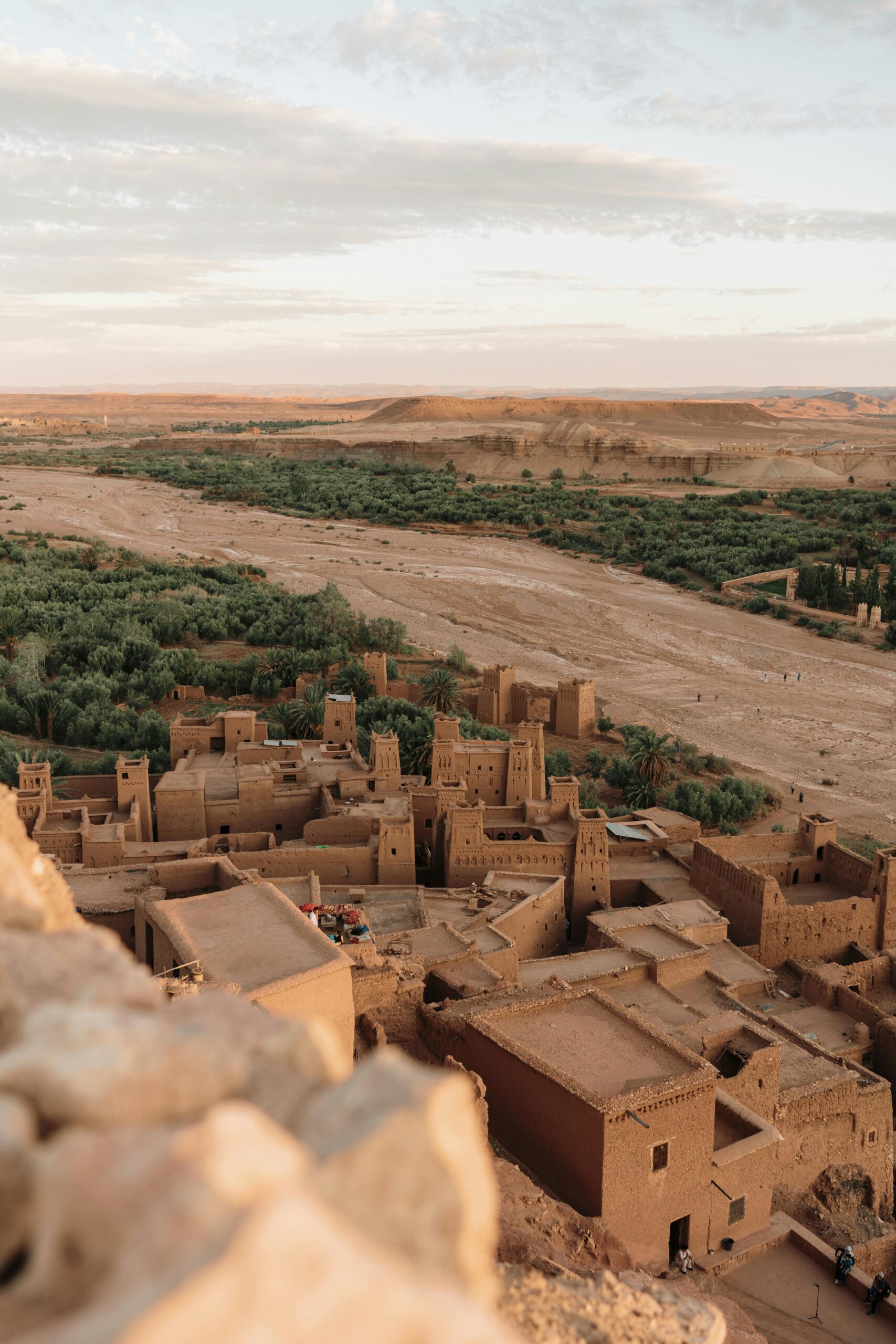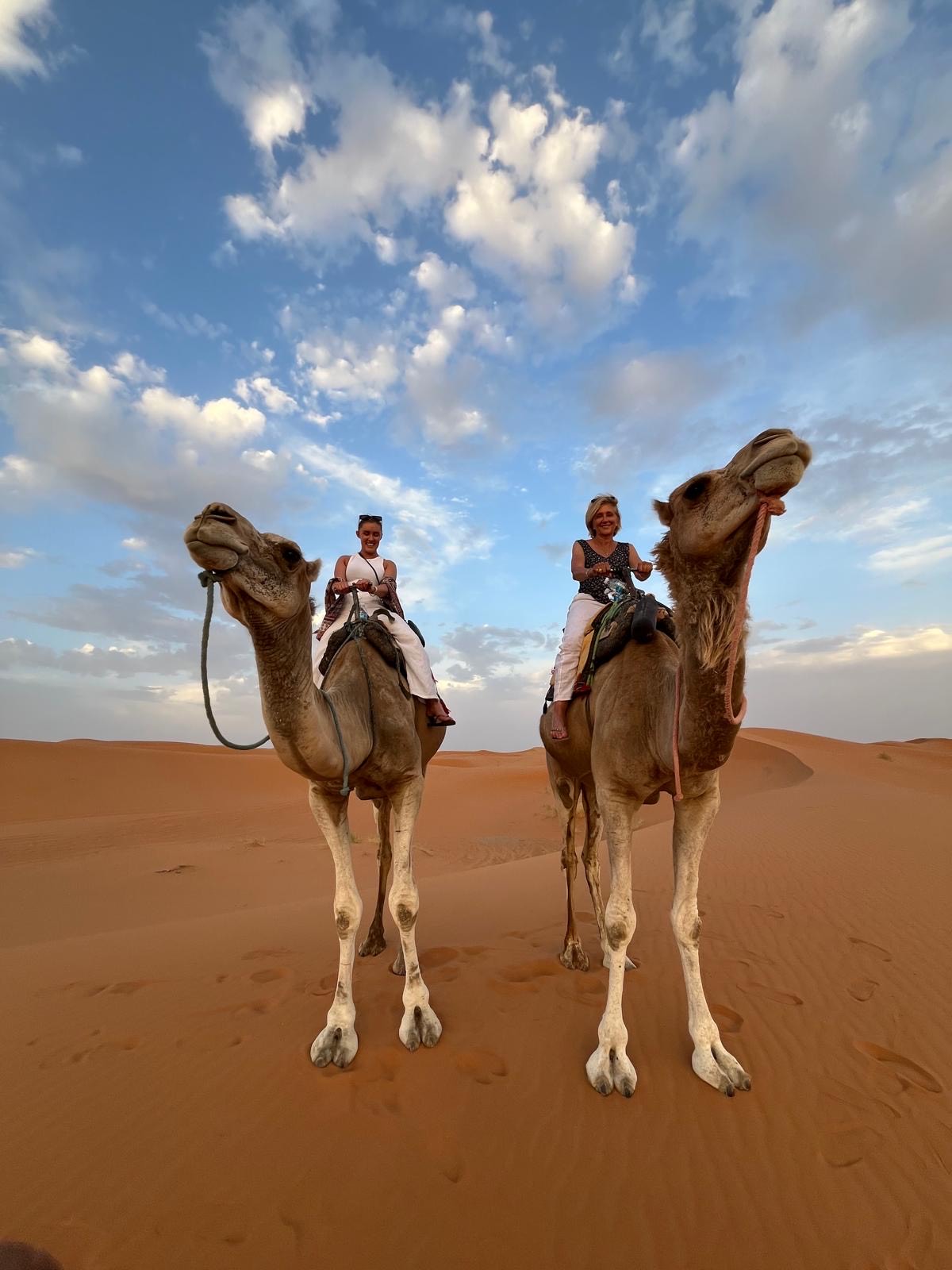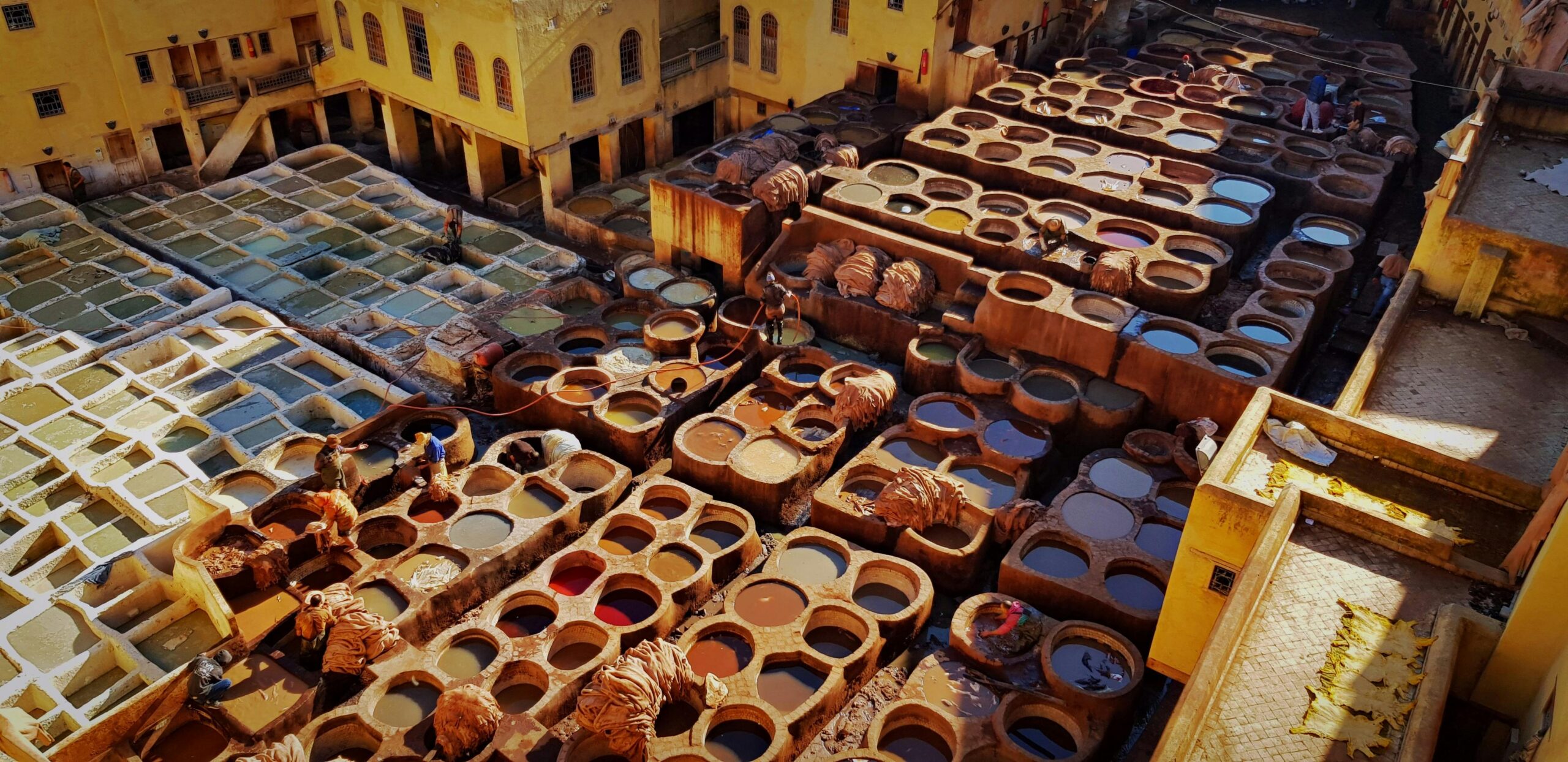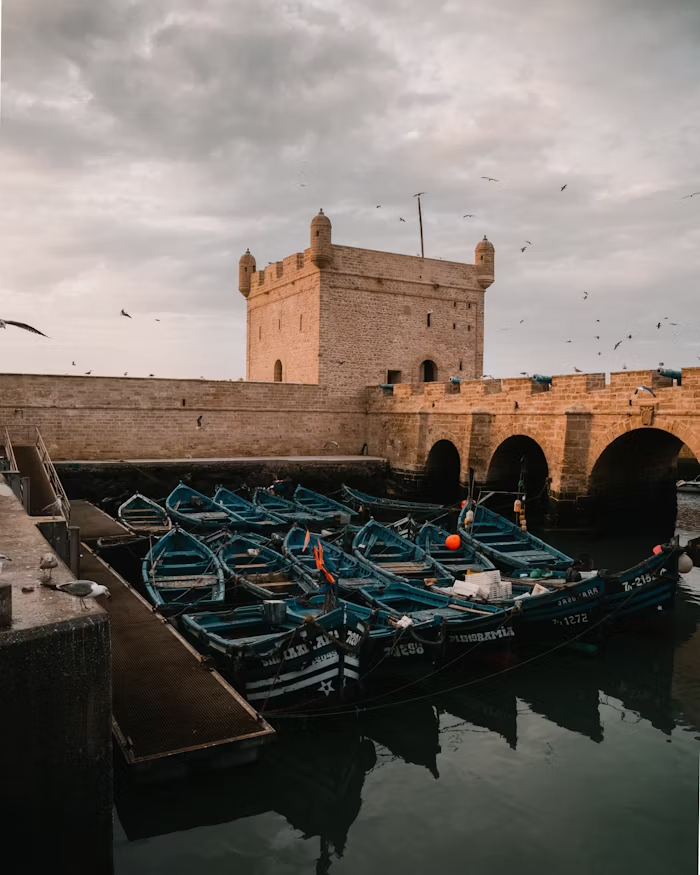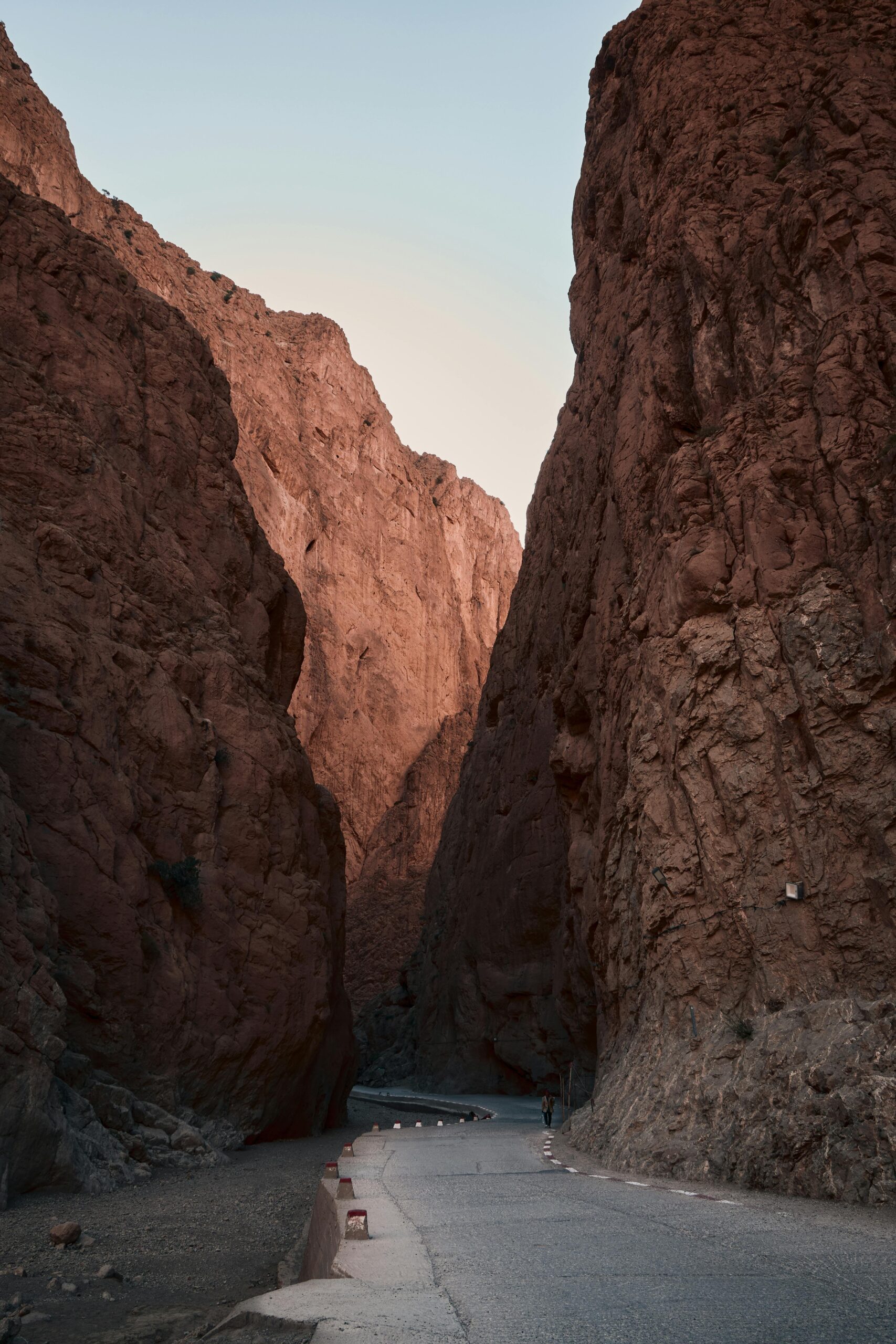15 Moroccan Festivals That’ll Make You Fall Head Over Heels for Morocco

15 Moroccan Festivals That’ll Make You Fall Head Over Heels for Morocco
Table of Contents
Picture this: you’re standing in a narrow alley in Fes, the sun’s setting behind ancient medina walls, and suddenly the air fills with hypnotic Gnaoua rhythms. A crowd gathers. Strangers become friends. This is Morocco during festival season—and honestly? It’s pure magic.
Moroccan festivals aren’t just events you attend; they’re experiences that grab you by the soul and refuse to let go. Whether you’re a music junkie, a culture vulture, or just someone who wants to see Morocco beyond the guidebook clichés, these celebrations offer something genuinely extraordinary.
Let me walk you through the festivals that’ll make your Morocco trip absolutely unforgettable.
1. Fes Festival of World Sacred Music – Where Spirituality Meets Melody
[Insert image: Aerial view of Fes Festival outdoor concert at Bab Makina with crowd at sunset]
If there’s one festival that captures Morocco’s soul, it’s this one. The Fes Festival of World Sacred Music transforms the entire city into a spiritual concert hall every June. We’re talking Sufi mystics, gospel choirs, Buddhist monks, and flamenco artists—all sharing stages across Fes’s most stunning venues.
What Makes It Special:
- Concerts in jaw-dropping locations (think: ancient courtyards and palace gardens)
- A genuine celebration of interfaith harmony
- World-class artists you won’t see anywhere else
- The whole city buzzes with an energy that’s borderline transcendent
The significance of the Fes Festival of World Sacred Music goes beyond entertainment. Founded in 1994, it’s become a global platform for dialogue between cultures and religions. You’ll leave with your Spotify playlist transformed and your worldview slightly shifted.
Pro tip: Book accommodation months ahead. Seriously. The whole city fills up faster than you can say “sold out.”
2. Gnaoua Festival Essaouira – Three Days of Nonstop Vibes


Every June, sleepy seaside Essaouira wakes up with a jolt. Half a million people flood this coastal gem for the Gnaoua Festival Essaouira—one of Africa’s biggest free music festivals.
Gnaoua music has West African roots mixed with Berber, Arab, and Amazigh influences. It’s trance-inducing, rhythm-heavy, and utterly mesmerizing. But here’s the kicker: organizers blend traditional Gnaoua with jazz, rock, reggae, and electronic music. The fusion? Chef’s kiss.
How Tourists Can Participate in the Gnaoua Festival:
- Just show up! Most concerts are completely free
- Wander between multiple stages scattered across the medina
- Join the street jam sessions (locals welcome everyone)
- Take workshops to learn about Gnaoua traditions
- Stay for the entire weekend—each night gets better
The festival creates this beautiful chaos where international headliners share billing with local masters. You might catch a Grammy winner at 9 PM and then stumble into an impromptu rooftop session at midnight.
3. Mawazine Festival Morocco – Rabat’s Mega Music Extravaganza
Think Coachella meets Moroccan hospitality. Mawazine Festival Morocco in Rabat is the country’s largest music festival, attracting over 2.5 million visitors annually. We’re talking seriously big names—past lineups included Rihanna, Stevie Wonder, and Christina Aguilera.
Late May brings Rabat alive with nine days of concerts across multiple stages. Pop, rock, hip-hop, Arabic music, Moroccan chaabi—there’s genuinely something for everyone.
Festival Highlights:
- Free outdoor concerts (yes, FREE)
- Paid premium shows with international superstars
- Diverse genres celebrating global and Moroccan talent
- Perfect excuse to explore underrated Rabat
The vibe’s less “exclusive music festival” and more “massive citywide party where everyone’s invited.”
4. Marrakech Popular Arts Festival – Culture on Full Display
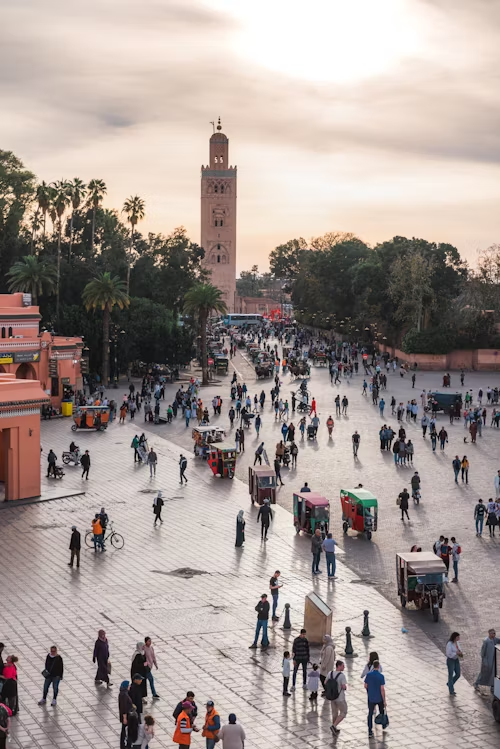
July in Marrakech already sizzles, but add the Marrakech Popular Arts Festival and things get properly hot. For over 50 years, this festival has showcased Morocco’s incredible artistic diversity.
Cultural Traditions Showcased at the Marrakech Popular Arts Festival:
- Traditional dance from every Moroccan region (Ahidous, Guedra, Tissint dances)
- Folk music spanning Berber, Gnaoua, and Andalusian styles
- Acrobatic performances by talented troupe groups
- Equestrian shows featuring fantasia (traditional horseback rifle performances)
- Storytelling sessions keeping ancient oral traditions alive
- Craft demonstrations by master artisans
The main action happens at El Badi Palace and Jemaa el-Fnaa square. Watching acrobats flip through the air while the Atlas Mountains frame the background? That’s the kind of memory that sticks.
5. Rose Festival Morocco (Kelaat M’Gouna) – Valley of a Million Blooms
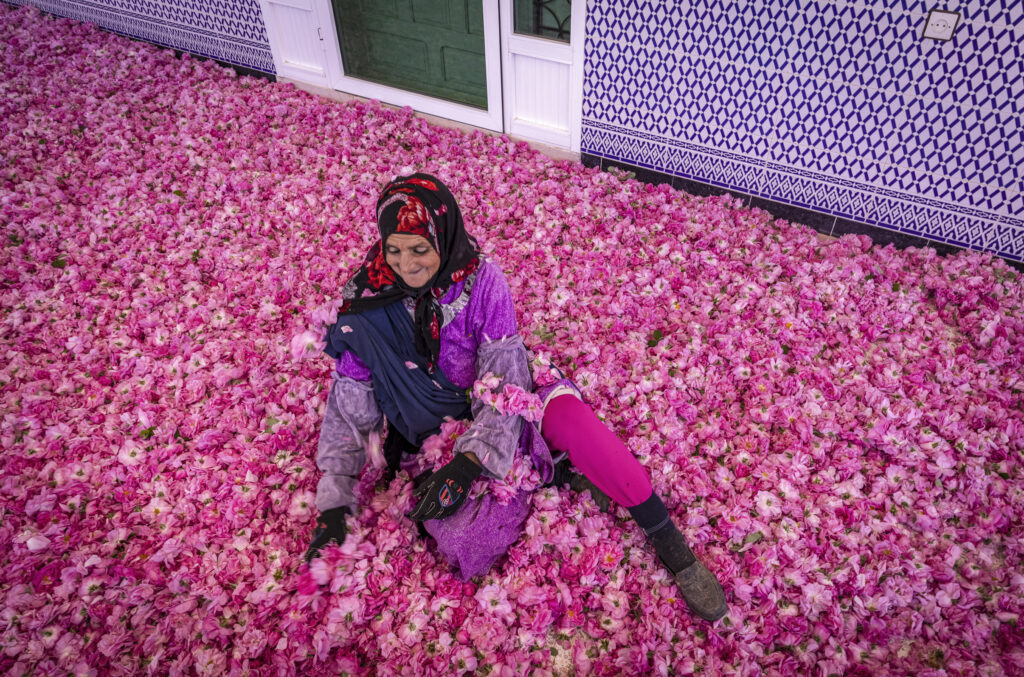
[Insert image: Women in traditional dress holding baskets of rose petals in Dades Valley]
Late May transforms the Dades Valley into something straight out of a fairy tale. The Rose Festival in Kelaat M’Gouna celebrates the annual rose harvest with a three-day explosion of color, scent, and celebration.
What the Rose Festival Is About:
- Honoring the Damask rose harvest (used for cosmetics and rosewater)
- A massive parade featuring elaborately decorated floats
- The crowning of the “Rose Queen”
- Market stalls selling rose products—rosewater, oils, soaps
- Traditional Berber music and dance performances
- A rare glimpse into Berber agricultural traditions
The surrounding valleys turn pink with millions of roses. Locals process petals for Morocco’s thriving cosmetics industry, and tourists get to join harvesting activities. It’s Instagram gold, sure, but also genuinely moving to witness this community celebration.
The drive there—through the Dades Gorges and Valley of Roses—is spectacular enough to justify the trip alone.
6. Imilchil Marriage Festival – Love in the High Atlas
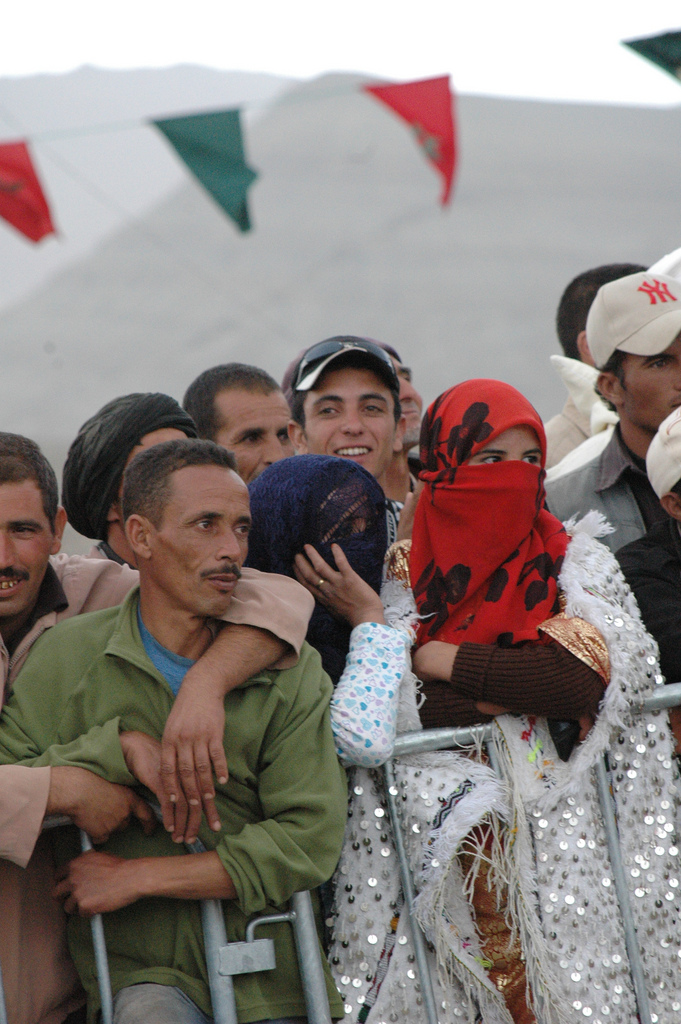
September brings one of Morocco’s most unique traditions: the Imilchil Marriage Festival. Deep in the High Atlas Mountains, Berber tribes gather for this centuries-old matchmaking event.
Historically, young Berber men and women could choose their own partners here—radical stuff in traditional societies. Today, it’s evolved into a broader cultural celebration, though some arranged engagements still happen.
Festival Features:
- Traditional Berber wedding ceremonies
- Spectacular mountain setting (2,300m altitude)
- Folk music and Ahidous dances
- Livestock markets and craft fairs
- Opportunity to witness authentic Amazigh culture
Fair warning: Imilchil’s remote. You’ll need either a solid 4×4 or a tour operator. But if you want an authentic Imilchil Marriage Festival experience far from tourist crowds, this delivers.
7. Timitar Music Festival Agadir – Amazigh Sounds by the Sea

July’s Timitar Music Festival Agadir puts Amazigh (Berber) culture front and center. It’s smaller than Mawazine but packs serious musical punch, blending traditional Amazigh sounds with contemporary influences.
The beachside setting in Agadir creates a relaxed festival atmosphere. You’ll catch Berber artists you’ve never heard of (but definitely should), alongside African and European musicians. It’s free, friendly, and genuinely committed to preserving indigenous Moroccan identity.
Between concerts, you’ve got Agadir’s beaches, seafood restaurants, and laid-back coastal vibe. Not a bad combination.
8. Tan Tan Moussem – Desert Nomad Traditions
[Insert image: Camel caravan at Tan Tan Moussem with traditionally dressed participants]
The Tan Tan Moussem is wild—UNESCO-recognized wild. This annual gathering in southern Morocco celebrates nomadic culture with camel races, traditional poetry competitions, and desert hospitality on full display.
What Visitors Should Know Before Attending:
- Happens in late May/early June in remote Tan Tan
- Showcases Saharan and nomadic heritage
- Features camel racing, fantasia shows, and traditional souks
- Remote location requires planning (limited accommodation)
- Extremely authentic—not designed for tourists
- Bring sun protection, water, and cultural sensitivity
This isn’t a polished festival experience. It’s raw, dusty, and deeply traditional. That’s precisely why it matters.
If you’re chasing authentic desert culture and don’t mind basic facilities, Tan Tan delivers something you simply won’t find elsewhere.
9. Moussem Moulay Abdellah Amghar – Coastal Pilgrimage Party
This August festival near El Jadida blends religious pilgrimage with cultural celebration. The Moussem Moulay Abdellah Amghar tradition honors a local saint, and thousands of pilgrims attend alongside musicians, riders performing fantasia, and market traders.
Moussems are uniquely Moroccan—part religious gathering, part cultural fair, part massive family reunion. They happen throughout Morocco, but this one’s particularly impressive for its coastal setting and spectacular horse exhibitions.
10. Marrakech International Film Festival – Cinema in the Red City
November brings Hollywood glamour to Morocco’s most charismatic city. The Marrakech International Film Festival attracts A-list celebrities, filmmakers, and cinema lovers to one of the world’s most scenic festival venues.
Screenings happen in the gorgeous Palais des Congrès and outdoor venues around Jemaa el-Fnaa. It’s less stuffy than Cannes, more accessible than Sundance, and set in a city that’s basically one big movie set itself.
You’ll spot Martin Scorsese chatting in a riad courtyard. You’ll watch Moroccan cinema alongside international premieres. You’ll realize film festivals don’t always need to be pretentious.
11. Erfoud Date Festival – Celebrating Liquid Gold
October in Erfoud means one thing: dates. The Erfoud Date Festival celebrates Morocco’s beloved fruit (okay, technically it’s the date palm harvest, but work with me here).
The Saharan gateway town goes all out with parades, date competitions (yes, really), traditional music, and enough date-based products to keep you sugar-buzzed for weeks.
It’s smaller and less touristy than major festivals, which is precisely the appeal. You’ll experience genuine local celebration rather than performance for visitors. Plus, the nearby Merzouga dunes make it easy to combine with desert adventures.
12. Essaouira Andalusian Atlantic Music Festival – Moorish Melodies
October also brings the Essaouira Andalusian Atlantic Music Festival, celebrating Andalusian musical traditions that connect Morocco and Spain. Think ornate melodies, classical Arabic poetry, and instruments like the oud and qanun.
It’s more intimate than the massive Gnaoua Festival, attracting serious music lovers and anyone interested in the cultural bridges between North Africa and Europe. The autumn weather’s perfect, crowds are manageable, and Essaouira’s charm is undiluted.
13. Fez Festival of Sufi Culture – Mystical Encounters
Spring brings another Fes treasure: the Fez Festival of Sufi Culture. Smaller than the World Sacred Music Festival, it focuses specifically on Sufi traditions—whirling dervishes, devotional music, and spiritual practices from across the Islamic world.
Venues include stunning historic sites like Bab Makina and intimate settings perfect for contemplative performances. If you’re spiritually curious or just appreciate transcendent music, this festival offers something genuinely profound.
14. Oujda Rai Festival – North African Beats
The eastern city of Oujda hosts this celebration of Raï music—the genre that gave the world Cheb Khaled and infectious, socially-conscious North African beats. It’s grittier and more working-class than some fancy festivals, with the kind of authentic energy that makes festivals memorable.
Raï originated in Algeria but flourishes across the Maghreb. The Oujda Raï Festival showcases established stars and emerging talents, all while Oujda’s underrated charms surprise visitors who rarely make it this far east.
15. Cherry Festival Sefrou – Small Town, Big Flavor
June’s Cherry Festival Sefrou might not make international headlines, but this charming celebration near Fes embodies everything lovely about Moroccan community festivals.
There’s a cherry queen coronation (naturally), music performances, market stalls groaning with fresh cherries, and a relaxed small-town atmosphere that feels wonderfully authentic. No massive crowds. No corporate sponsors. Just locals celebrating their harvest and welcoming visitors to join the party.
Sometimes the best travel experiences happen in places nobody told you to visit.
Understanding Moroccan Festivals: Religious vs. Cultural Celebrations

How Moroccan Religious Festivals Differ from Cultural Festivals:
AspectReligious FestivalsCultural FestivalsPurposeHonor Islamic traditions or local saintsCelebrate music, arts, harvest, heritageTimingOften follow Islamic lunar calendarFixed seasonal datesActivitiesPrayer, pilgrimage, ritual observancesConcerts, parades, performances, marketsAtmosphereReverent, spiritual, community-focusedCelebratory, festive, often tourist-friendlyExamplesEid al-Fitr, Eid al-Adha, MoussemsGnaoua Festival, Mawazine, Rose FestivalDress CodeModest clothing requiredMore relaxed (though respect still matters)AccessibilitySome elements private to MuslimsGenerally open to all visitors
Religious festivals like Eid al-Fitr (marking Ramadan’s end) and Eid al-Adha (sacrifice feast) are deeply spiritual. They’re primarily for Moroccan families, though respectful tourists are welcomed as observers. Expect closed shops, family gatherings, and a quieter, more introspective atmosphere.
Moroccan Berber festivals like Imilchil or celebrations in mountain villages showcase indigenous Amazigh culture. They’re cultural rather than explicitly religious, though tradition and spirituality interweave.
Understanding these distinctions helps you approach each festival appropriately and appreciate its unique significance.
Morocco Festival Calendar: When to Experience Each Celebration
Best time to experience festivals in Morocco:
Spring (March-May):
- Fez Festival of Sufi Culture (April)
- Rose Festival Kelaat M’Gouna (Late May)
- Mawazine Festival Rabat (Late May)
- Tan Tan Moussem (Late May/Early June)
Summer (June-August):
- Fes Festival of World Sacred Music (June)
- Gnaoua Festival Essaouira (Late June)
- Marrakech Popular Arts Festival (July)
- Timitar Music Festival Agadir (July)
- Moussem Moulay Abdellah Amghar (August)
Fall (September-November):
- Imilchil Marriage Festival (September)
- Erfoud Date Festival (October)
- Essaouira Andalusian Atlantic Music Festival (October)
- Marrakech International Film Festival (November)
Winter (December-February):
- Various regional moussems
- Smaller local festivals
The Morocco festival calendar concentrates heavily in spring and summer when weather cooperates and tourists flood in. But honestly? Fall festivals offer gorgeous weather with fewer crowds.
Practical Guide: Making the Most of Moroccan Festivals
Getting Tickets
Where to buy tickets for major Moroccan festivals:
- Mawazine: Official website (mawazine.ma) or FNAC stores across Morocco
- Marrakech Film Festival: Online through official festival website
- Fes Festival of World Sacred Music: fesfestival.com or on-site ticket booths
- Most other festivals: Often FREE or ticketing available at venue
Many festivals offer both free and paid concerts. The biggest international acts require tickets, but you’ll find plenty of free performances to enjoy.
Pro tip: For popular festivals, book tickets AND accommodation simultaneously. Hotels near festival sites triple their prices and sell out fast.
Where to Stay
Where to stay for Moroccan festivals:
- Major cities (Marrakech, Fes, Rabat): Book riads or hotels 3-6 months ahead
- Smaller towns (Essaouira, Agadir): Reserve at least 2 months early
- Remote locations (Imilchil, Tan Tan): Very limited options—consider camping or organized tours
- Budget option: Look for accommodation in nearby cities and arrange transport
Many tour operators offer festival packages including accommodation, transportation, and sometimes tickets. Worth considering for remote festivals or if planning stresses you out.
What to Bring
- Comfortable shoes (you’ll walk miles between venues)
- Layers (desert nights get cold; summer days roast)
- Sun protection (Moroccan sun doesn’t joke around)
- Cash (not everywhere takes cards, especially at smaller festivals)
- Open mind (cheesy but true—go with the flow)
- Modest clothing for religious festivals or conservative areas
Festival Food and Drinks
Moroccan festival food and drinks are half the experience. Expect:
- Street food stalls serving tagines, couscous, grilled meats
- Freshly squeezed orange juice vendors everywhere
- Mint tea (obviously)
- Regional specialties depending on location
- International food trucks at larger festivals
Food’s generally safe, affordable, and absolutely delicious. Just avoid ice in drinks and wash fruit before eating.
Cultural Sensitivity
Morocco’s welcoming, but respect goes a long way:
- Dress modestly at religious festivals
- Ask permission before photographing people
- Learn a few Arabic or Berber phrases (locals love the effort)
- Don’t drink alcohol publicly during Ramadan
- Be mindful during prayer times
- Respect personal space in crowds
Moroccans are genuinely hospitable. Show respect, and you’ll be treated like family.
The Most Popular Moroccan Festivals to Attend
If you’re building an itinerary and need to prioritize, here are the most popular Moroccan festivals to attend:
1. Fes Festival of World Sacred Music – Internationally renowned, stunning venues, diverse programming
2. Gnaoua Festival Essaouira – Massive attendance, incredible energy, beautiful coastal setting
3. Mawazine Festival Rabat – Biggest festival in Morocco, top-tier international artists
4. Marrakech Popular Arts Festival – Long-standing tradition, showcases Moroccan diversity beautifully
5. Rose Festival Kelaat M’Gouna – Unique celebration, gorgeous location, authentic local experience
These five consistently deliver unforgettable experiences and manageable logistics for international visitors.
Getting Around: Transportation Tips
Festival transportation strategies:
- Between cities: CTM or Supratours buses work well; trains connect major cities
- Within festival cities: Taxis (agree on price first), ride-sharing apps in larger cities
- Remote festivals: Rent a car, join organized tours, or hire private drivers
- Walking: Often the best option in medinas and around festival venues
Many festivals create traffic chaos. Budget extra time for everything. That spontaneous detour might lead to your best festival memory anyway.
Shopping for Memories
Moroccan festival souvenirs offer more than tourist tchotchkes:
- Music: Buy CDs from performers (supports artists directly)
- Crafts: Festival markets sell regional specialties
- Rose products: Kelaat M’Gouna’s festival features incredible rosewater and oils
- Textiles: Berber festivals showcase stunning woven goods
- Instruments: Pick up a guembri, bendir, or qarqaba
- Jewelry: Traditional Berber silver jewelry at cultural festivals
Prices are generally reasonable, but haggling’s expected (and fun). Start at half the asking price and negotiate cheerfully.
Beyond the Festivals: Exploring Morocco
Festivals are spectacular, but don’t let them monopolize your itinerary. Morocco’s everyday magic deserves exploration:
- Desert adventures: Combine Erfoud’s festival with Sahara camping
- Mountain trekking: Use Imilchil as base for Atlas hiking
- Beach time: Essaouira’s festivals + surfing = perfection
- Medina wandering: Fes and Marrakech reward aimless exploration
- Culinary experiences: Take cooking classes between festival days
The country’s compact enough to mix festivals with classic Morocco experiences. A well-planned trip might hit multiple festivals while covering imperial cities, desert landscapes, and coastal beauty.
Frequently Asked Questions
What are the most popular Moroccan festivals to attend?
The most popular Moroccan festivals include the Fes Festival of World Sacred Music (June), Gnaoua Festival in Essaouira (late June), Mawazine Festival in Rabat (late May), Marrakech Popular Arts Festival (July), and the Rose Festival in Kelaat M’Gouna (late May). Each offers unique experiences—from spiritual world music to massive pop concerts to cultural celebrations.
When is the best time to experience festivals in Morocco?
Late spring and summer (May-July) offer the highest concentration of festivals, including most major music and cultural celebrations. However, fall (September-November) provides excellent weather, smaller crowds, and unique festivals like Imilchil Marriage Festival and Marrakech Film Festival. Winter has fewer large festivals but numerous smaller regional moussems.
What is the significance of the Fes Festival of World Sacred Music?
The Fes Festival of World Sacred Music promotes interfaith dialogue and cultural understanding through music. Founded in 1994, it brings together sacred music traditions from around the world—Sufi, Christian, Jewish, Buddhist, Hindu—creating a platform for spiritual and artistic exchange. Beyond entertainment, it’s become a UNESCO-recognized symbol of tolerance and cultural diversity.
How can tourists participate in the Gnaoua Festival in Essaouira?
Tourists can fully participate in the Gnaoua Festival—most concerts are completely free and open to everyone. Simply show up in Essaouira during the festival weekend (late June), explore multiple stages throughout the medina, join street performances, attend workshops about Gnaoua culture, and immerse yourself in the atmosphere. Some premium concerts with international artists require tickets available through the official website.
What cultural traditions are showcased at the Marrakech Popular Arts Festival?
The Marrakech Popular Arts Festival showcases traditional Moroccan dance forms (Ahidous, Guedra, Tissint), folk music from various regions, acrobatic performances, equestrian fantasia shows, storytelling sessions, and craft demonstrations. It celebrates Morocco’s diverse cultural heritage—Arab, Berber, Saharan, and Andalusian influences—all in the spectacular setting of El Badi Palace and Jemaa el-Fnaa square.
Are there any festivals celebrating Moroccan Berber heritage?
Yes! Moroccan Berber festivals include the Imilchil Marriage Festival (September) in the High Atlas, Timitar Music Festival in Agadir (July) focusing on Amazigh culture, various regional moussems in mountain villages, and the Rose Festival (which celebrates Berber agricultural traditions). These festivals preserve indigenous Amazigh culture through traditional music, dance, crafts, and customs.
What is the Rose Festival in Kelaat M’Gouna about?
The Rose Festival celebrates the annual Damask rose harvest in the Dades Valley. For three days in late May, Kelaat M’Gouna hosts parades with elaborately decorated floats, crowns a Rose Queen, features traditional Berber performances, and fills markets with rose products—rosewater, oils, soaps, cosmetics. It honors the region’s rose-growing heritage and the community that cultivates these blooms for Morocco’s thriving cosmetics industry.
How do Moroccan religious festivals differ from cultural festivals?
Religious festivals (Eid al-Fitr, Eid al-Adha, moussems honoring saints) focus on spiritual observance, prayer, and religious tradition, often following the Islamic lunar calendar. They’re primarily family-centered with modest dress requirements. Cultural festivals celebrate arts, music, harvest, and heritage with concerts, performances, and parades. They’re more tourist-accessible and festive. Both are important but serve different purposes in Moroccan society.
Where can I buy tickets for major Moroccan festivals?
Festival tickets are available through official festival websites (mawazine.ma for Mawazine, fesfestival.com for Fes Sacred Music), FNAC stores across Morocco, or on-site ticket booths. Many festivals like Gnaoua, Timitar, and Popular Arts Festival offer free entry to most performances. Premium concerts with international artists require advance tickets. Purchase early—popular shows sell out quickly.
What should visitors know before attending the Tan Tan Moussem?
The Tan Tan Moussem is extremely remote and authentic—not designed primarily for tourists. Accommodation is very limited, so consider camping or organized tours. Bring sun protection, water, and modest clothing. It showcases genuine nomadic Saharan culture through camel races, traditional poetry, and desert hospitality. The experience is raw and dusty but offers unmatched authenticity for those willing to rough it slightly.
Making It Happen: Plan Your Moroccan Festival Adventure
Morocco’s festivals aren’t just events—they’re doorways into the country’s soul. They reveal traditions passed down through generations, music that makes your heart beat differently, and human connections that transcend language.
Sure, you could visit Morocco and tick off the standard sights. The medinas, the deserts, the tagines. All wonderful.
But catch Morocco during festival season? That’s when the country’s true character explodes into view. That’s when you realize guidebooks only tell half the story.
Whether you’re drawn to spiritual music in Fes, desert traditions at Tan Tan, or simply want to dance alongside half a million people in Essaouira, Morocco’s festivals deliver experiences that stick with you long after the music fades.
The hardest part? Choosing which ones to attend.
The easiest part? Knowing that whichever festivals you pick, you’re in for something genuinely special.
Ready to Experience Morocco’s Festival Magic?
Don’t just read about these incredible celebrations—live them. Morocco’s festivals are calling, and trust me, you want to answer.
Start planning your Moroccan festival adventure today:
Book Your Festival Tour
We specialize in creating personalized festival experiences that combine Morocco’s best celebrations with desert adventures, cultural immersion, and authentic local encounters. Whether you want to catch the Gnaoua Festival in Essaouira, explore the Rose Festival in the Dades Valley, or experience the spiritual magic of Fes, we’ll handle the details so you can focus on the memories.
👉 Explore Our Morocco Festival Tours
Our festival packages include:
- Accommodation near festival venues
- Transportation throughout Morocco
- Local guides who know the best spots
- Flexible itineraries combining multiple festivals
- Desert tours, city exploration, and cultural experiences
- Small groups for personalized attention
Explore Individual Festivals in Detail
Want to dive deeper into specific celebrations? Check out our comprehensive festival guides with insider tips, detailed schedules, and everything you need to know:
👉 Browse Our Complete Moroccan Festivals Calendar
Each festival page includes:
- Exact dates and duration
- Venue information and maps
- Ticket prices and purchasing details
- Accommodation recommendations
- Transportation tips
- What to expect and how to prepare
- Photo galleries from previous years
Get in Touch
Have questions about which festival suits your travel style? Need help planning dates or combining festivals with other Morocco experiences? Our team knows Moroccan festivals inside and out.
Contact Us:
- Email: contact@yourguidetomorocco.com
- Phone: +212 718-448804
- WhatsApp: +212 718-448804
Office Hours: Monday-Saturday, 9:00 AM – 6:00 PM (GMT+1)
We respond to inquiries within 24 hours and offer free consultation calls to help you plan the perfect festival-focused Morocco adventure.
Follow Morocco’s Festival Scene
Stay updated on festival announcements, lineup releases, and special events:
- Instagram: @yourguidetomorocco
- Facebook: /yourguidetomorocco
Why Book With Us?
- Local expertise: We’re based in Morocco and attend these festivals ourselves
- Authentic experiences: Beyond tourist performances—we show you the real Morocco
- Flexible planning: Customize tours to match your interests and budget
- Safety first: Reliable transportation, vetted accommodations, 24/7 support
- Cultural sensitivity: We respect local traditions and help you do the same
- Best value: Direct access without middlemen inflating prices
Morocco’s festivals are more than entertainment—they’re transformative experiences that connect you with centuries of tradition, bring you face-to-face with incredible hospitality, and create memories that outlast your camera roll.
The music’s playing. The crowds are gathering. The festivals are waiting.
Your Moroccan adventure starts now.
Book Your Festival Tour Today | Explore All Festivals | Contact Us
Have you experienced Moroccan festivals? Share your stories in the comments below! And if you found this guide helpful, share it with fellow travelers planning their Morocco adventures.
External Resources:
- UNESCO Intangible Cultural Heritage – Morocco
- Morocco Tourism Official Website
- Fes Festival Official Site
Related Articles:




